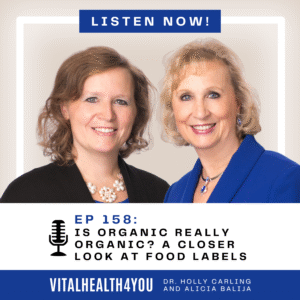Part I
Most people know how important exercise and nutrition is for the heart. But there is more you can do to improve your heart health. It is my goal to expand your knowledge in such a way that applying some simple tweaks, can positively impact the health of your heart.
To quote William Harvey, considered the father of cardiology in 1628 “The heart…is the beginning of life; the sun of the microcosm…for it is the heart by whose virtue and pulse the blood is moved, perfected, made apt to nourish, and is preserved from corruption and coagulation; it is the household divinity which, discharging its function, nourishes, cherishes, quickens the whole body, and is indeed the foundation of life, the source of all action”.
In order for our cardiovascular (CV) system to nourish us, we have to nourish it. I will discuss nutrition in Part II, so watch for that article. In Part I, I will cover other things that can really support our heart health.
A person dies from cardiovascular disease every 34 seconds! Wow! What can we do so that we aren’t part of that statistic?
Rest: We work too hard and rest too little. All of nature has a pattern – they rest twice as long as they work. Most of nature doesn’t have cardiovascular disease. It is said that it takes 2 hours of sleep after midnight to equal 1 hour of sleep before midnight. Get to bed early.
Dental Health: If you have gum disease – bleeding or receding gums, you are at greater risk of cardiovascular disease. Bad breath can be an indication of poor gum health. Get it checked out and resolved.
The thyroid regulates the life forces in the body. It is important in CV health. The thyroid hormones regulate the body’s metabolism and movement. They influence how the body uses energy, which can affect heart rate and rhythm, blood pressure and cholesterol levels. It is instrumental in normal growth and development of the heart muscle. Thyroid disease increases the risk of blood clot formation as well. Get any thyroid issues resolved.
More and more we are recognizing the role of “broken heart syndrome” in cardiovascular health. “Broken heart syndrome,” also known as stress cardiomyopathy, is a condition where extreme emotional or physical stress can lead to heart muscle weakness or failure. It is too common that after the death of a spouse or loved one, that the person remaining starts to develop CV disease themselves and die soon after the loved-one’s death. To potentially help overcome or manage broken heart syndrome, don’t drink alcohol excessively, manage stress, improve the nutrition in the foods you eat, exercise regularly, stay connected to other loved ones and friends, and seek medical help if you get symptomatic, and not just pass it off as “sympathy” symptoms.
In Part II of Heart Health: Surprising Insights, I will discuss nutrition for heart health.
Part II
In Part I of Heart Health: Surprising Insights, we talked about several aspects of health or lifestyle that contribute to, or help cardiovascular (CV) health. This 2nd part discusses the nutrition key.
Nutrients: This is a big one. The heart needs a good balance of minerals – especially Magnesium, Potassium, and Calcium, but in food forms, not as isolates. Calcium can also get you into trouble. The best calcium is ionizable calcium, like Calcium Lactate (not from dairy). It is needed for muscular contraction, the electrical impulses in the heart, blood vessel tone, proper coagulation and cell signaling. Calcium carbonate is the worst kind of calcium and can contribute to hardening of the arteries and other problems. You should not be able to feel your heart at any time (unless climbing stairs or running). If you do, it can be a sign of nutritional deficiencies, either of minerals or of B Vitamins.
B Vitamins are critical to the tone of the heart, homocysteine metabolism, red blood cell formation, energy and cellular production, antioxidant activity and cholesterol metabolism. However, most B Vitamins are synthetic and don’t have those positive benefits. B Vitamins should be in a food form.
Keep in mind that potency is about function, not about how many milligrams of a vitamin, mineral or amino acid is on your supplement label. A food-based supplement will elicit far better functional and healing support than tons of synthetic, fractionated or denatured nutrients in a bottle. There are no high potencies in nature.
Coronary Artery Disease is significant, especially in women, and at earlier and earlier ages. Break down of vascular tissue doesn’t have to happen. It is influenced mostly by protein and vitamin C. Ascorbic acid form of vitamin C doesn’t help. It is simply the chemical marker for vitamin C. The way it is bottled is a fractionated version, missing most of the functional components. It should only be consumed as a food form – camu camu, acerola cherries, and rose hips. If it says “ascorbic acid” or “calcium ascorbate” it will have the opposite effect – it may actually contribute to breakdown of vascular walls. By the way, glucose competes with vitamin C in the cell. Too much sugar results in too little vitamin C to assist in the repair process.
Protein is another piece of coronary artery health. The most important amino acid (protein) for CV health is tyrosine. But tyrosine is destroyed by heat. So don’t go out and buy it in a bottle unless it says on the label that it was produced in temperatures below 120 degrees. Getting raw protein is essential, such as in raw nuts and seeds. All 22 functional amino acids have to be present together to heal collagen, and without the tyrosine piece, it can’t do anything.
Being cognizant of your nutrition, getting rest, exercise, help for broken heart syndrome, and improving thyroid and dental health can go a long way in improving your cardiovascular health.
Want to hear more from Dr. Carling? Check out our podcast. Search for VitalHealth4You on your favorite podcast listening app or go to vitalhealthcda.com/podcasts/
©2024 Holly A. Carling, O.M.D., L.Ac., Ph.D.







